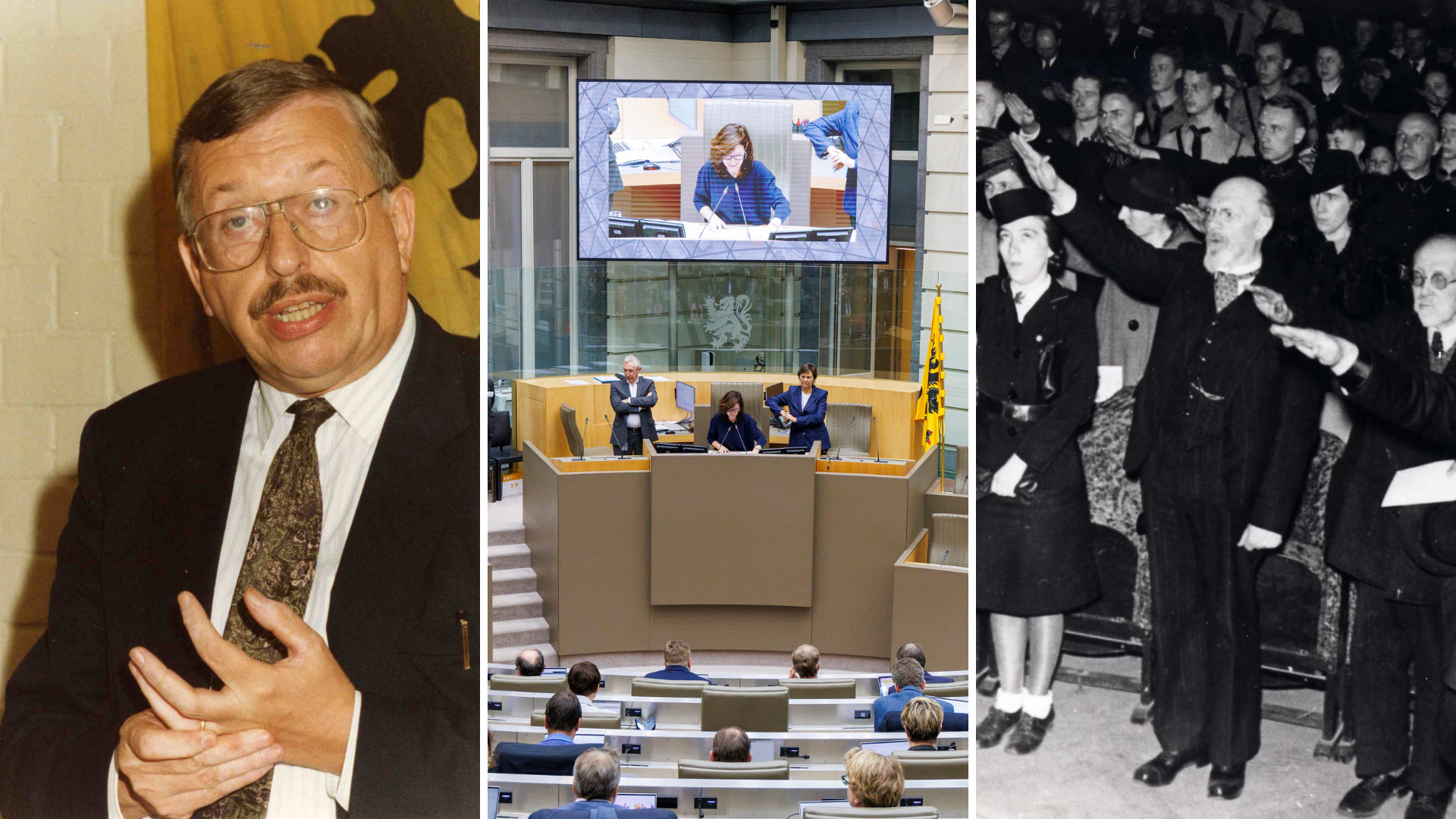Eyebrows were raised when the Flemish Parliament commemorated a convicted Holocaust denier just two weeks before the 80th anniversary of the liberation of Auschwitz.
A minute's silence was observed on 15 January for the Vlaams Blok founder Roeland Raes, who died in November. The commemoration was held in the Dutch-speaking regional parliament at the request of the family,
With Belgium under Nazi occupation between 1940-1945, the legacy of the Second World War occupation and the Flemish separatists' collaboration with Nazi authorities continues to divide the country today.
Born in 1934, the convicted Roeland Raes was a federal senator for 10 years. He is one of the founders of Vlaams Blok, the Belgian far-right party convicted and banned for racism in 2004 – which would later lead to its rebirth as Vlaams Belang. After sitting as a local councillor and a senator, Raes' political career fell apart in the 2000s when his open Nazi sympathies landed him in court.
Speaking on Dutch TV in 2001, Raes said: "I doubt the systematisation of the extermination of Jews and I also doubt the number of deaths." He also questioned "whether camps such as Auschwitz were all meant to be extermination camps."
In 2008, he was convicted over his views on the Holocaust expressed in that TV interview, where he had even questioned the authenticity of Anne Frank’s diary. His own party Vlaams Blok had distanced themselves from him.
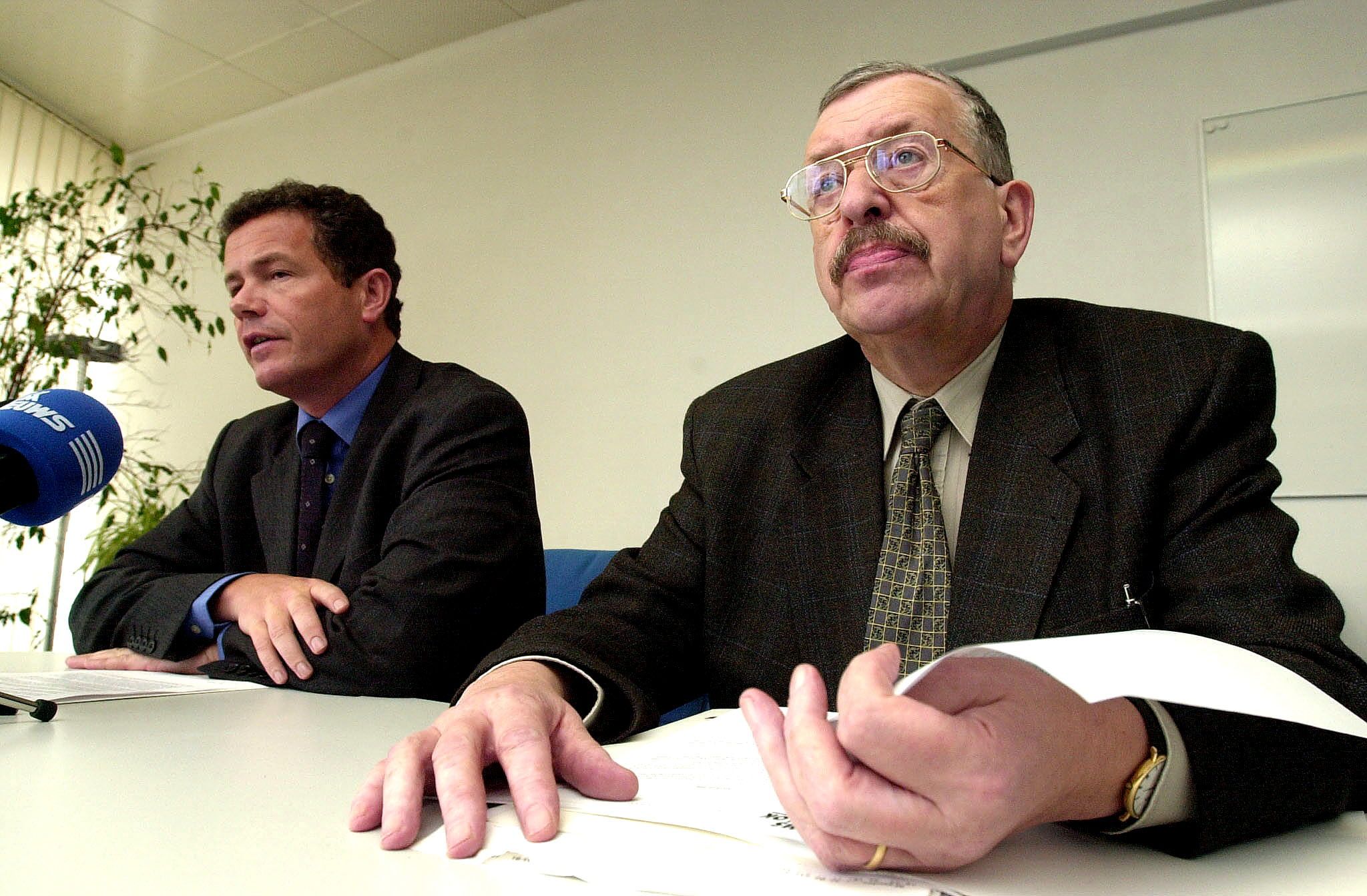
Vlaams Blok's senate member Roeland Raes (R) pictured after his resignation as Vlaams Blok senator after a revisionist comment on the Holocaust during a Dutch TV program, . Credit: Belga
In his younger days, Raes was an active member of Voorpost, an ethno-nationalist action group which advocated for Flemish reunification with the Netherlands. It had close ties to 1970s violent paramilitary groups, such as the banned Flemish Militant Organisation (VMO). Today, Voorpost is still one of the most active organisations in the Dutch-speaking far-right.
Raes’ activism extended to decades-long involvement in numerous far-right propaganda publications, including the Holocaust denial magazine Haro and The Switch-El Lazo – a far-right publication aimed at Flemish collaborators who emigrated to South America after the war.
In 2024, Raes returned to national headlines during the Belgian municipal elections last October. He was “symbolically” added to the Vlaams Belang municipal list in Aalter (East Flanders) at the age of 90. In the end, he chose not to stand “so as not to harm his party” in the election. He died one month later after a long illness.
Yet with Raes being too extreme for an electoral risk, but not enough for the Flemish Parliament, it raises the question: how should figures like Raes be remembered? As Flemish emancipators or individuals that glorified Nazi crimes?
Left v right
The question divided the regional parliament during Raes’ commemoration on 15 January. Progressive parties (Greens, PVDA and Vooruit) left the room in protest, stating they would refuse to pay tribute to Raes. Instead, they called on the other parties "to deal more critically with our history in the future."
The liberal Open VLD faction remained in the room, but remained seated, while MPs from Vlaams Belang, N-VA and CD&V all stood up in tribute during the moment of silence. "Paying tribute to someone who denied a genocide is not doable for us." Groen group leader in the Flemish Parliament Mieke Schauvliege stated on the day.
The European Jewish Association (EJA) has called for a review of the Flemish Parliament’s internal procedures. “A minute's silence should be reserved for defenders of democratic values in society. It is inappropriate to honour people convicted of serious offences,” stated Rabbi Menachem Margolin.
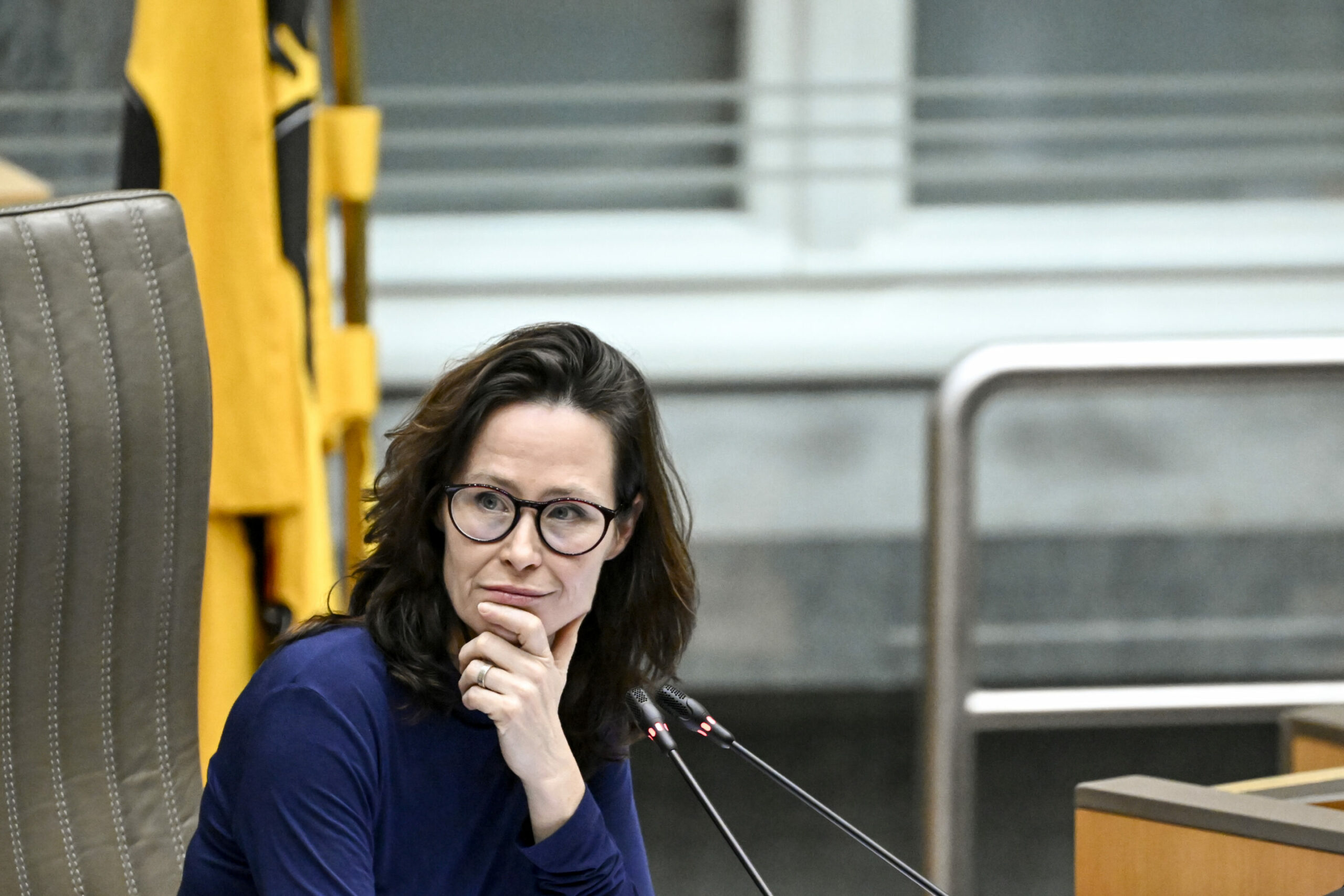
President of the Flemish Parliament Freya van den Bossche pictured during a plenary session of the Flemish Parliament in Brussels, Wednesday 15 January 2025. Credit: Belga / Dirk Waem
The new President of the Flemish Parliament, Freya van den Bossche (Vooruit), who presided over the commemoration, received the family’s request from the far-right Vlaams Belang group.
Unlike her party, Van den Bossche chose to stay in the room for the tribute. She justified her presence "as a human being, I believe that a person is more than the condemnation he or she has suffered." While Van den Bossche did not respond to requests for comment, she has indicated a willingness to debate a modification to the rules to VRT.
“The protocol for deceased ex-parliamentarians stipulates that when a death occurs, there will be a mention of it during a plenary session," a Flemish Parliament spokesperson told The Brussels Times. "The president of the parliament applied this protocol.” Raes was never a Flemish MP, but had sat on the Flemish Council, its predecessor.
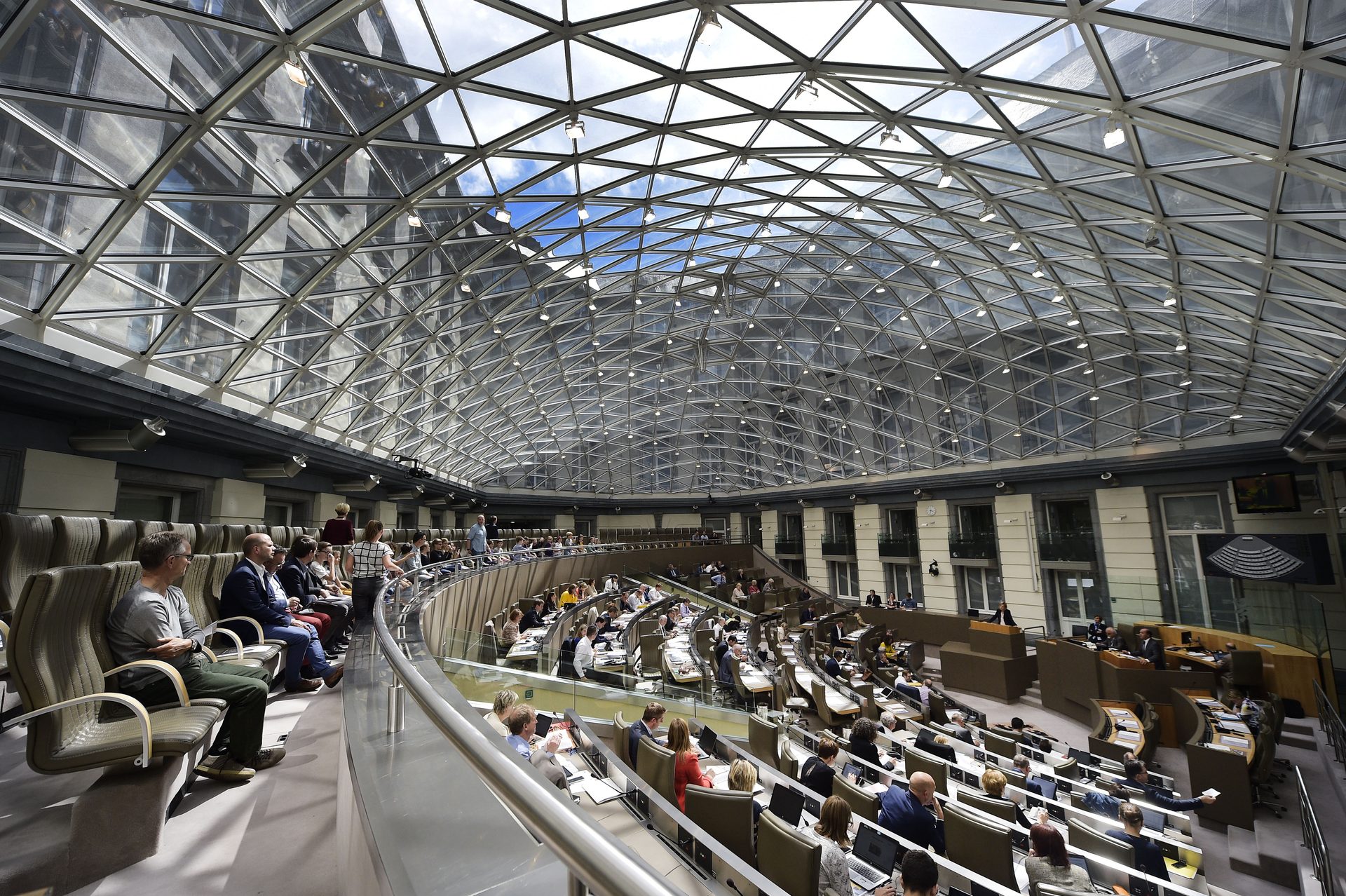
The Flemish Parliament. Credit: Belga / Yorick Jansens
For rules on commemorating convicted MPs, particularly for serious crimes, there are no guidelines regarding the holding of memorials in the parliament, the spokesperson confirmed.
"This protocol contains no specific provision for deceased ex-MPs who were convicted. However, as already stated, the president is open to an exchange of views on an amendment to the existing protocol," he said.
'Long tradition'
The President's decision to hold the tribute could be seen as a way of appealing to the right. The Flemish Parliament has a strong Flemish independence contingent: 31 far-right Vlaams Belang MPs and 31 right-wing N-VA MPs.
With Flanders currently experiencing record support for independence parties, the links between the Flemish Movement and collaboration during Second World War are often blurred. But commemorating a Holocaust denier just weeks before the 80th anniversary of the liberation of Auschwitz, has still exasperated some experts.
"There's a long, very long tradition on this. And this is not an accident. It is the normalisation of the collaboration of people who fought with the Nazis," historian Dany Neudt told The Brussels Times. Neudt is the founder of the non-profit Heroes of the Resistance, which organises conversations on the Belgian Resistance during the Second World War, and is co-coordinator of an academic chair on the subject at the Free University Brussels (VUB).
He points to similar cases in previous years. In 2022, a minute’s silence was also held for Oswald Van Ootghem in the Flemish Parliament. Van Ootghem was a former Nazi soldier who fought with a Flemish battalion of the Waffen-SS on the Eastern Front. In his biography on the Flemish Parliament website, there is no mention of his Nazi collaboration past.
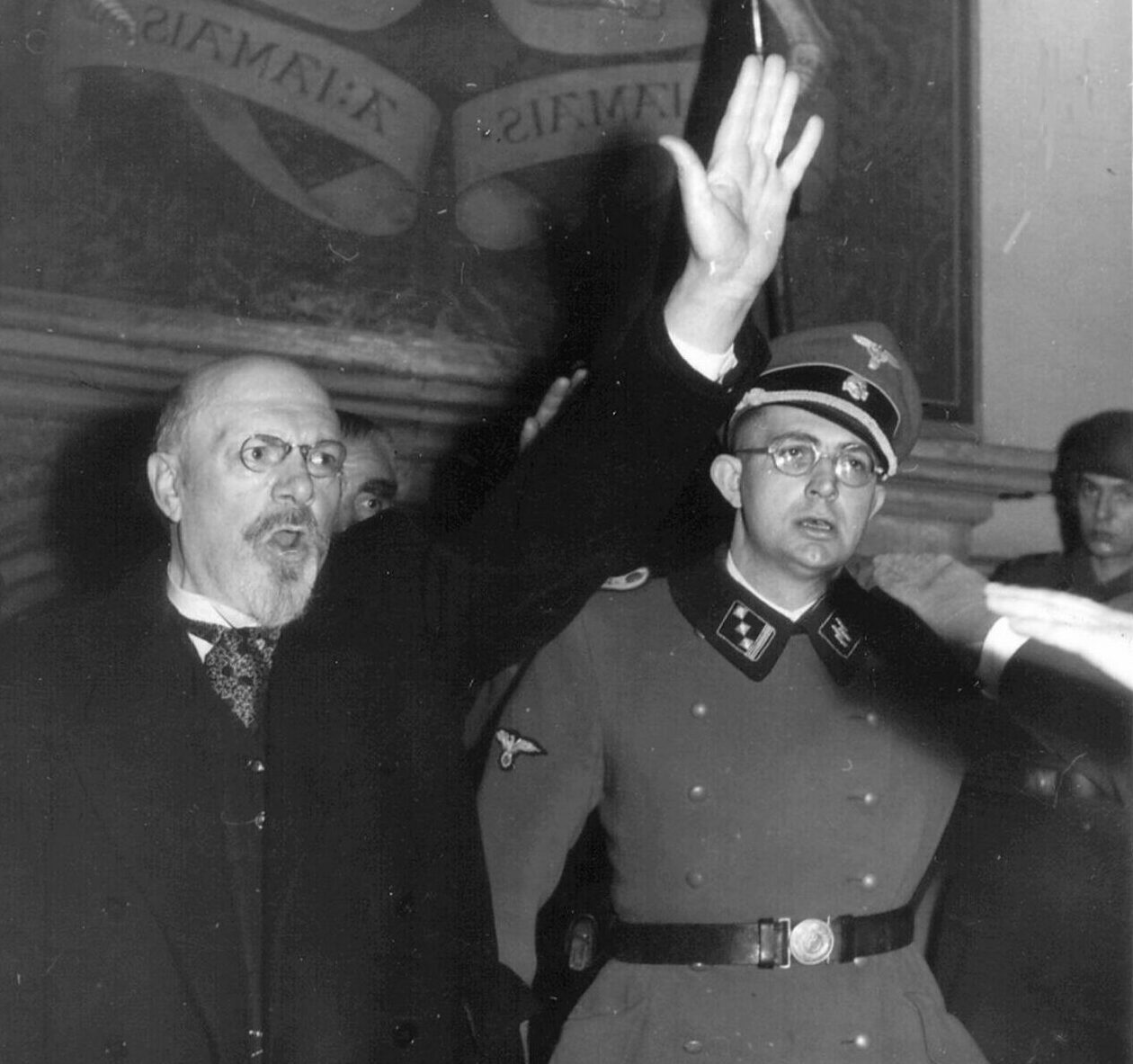
Flemish collaborator August Borms during the Second World War on 04 March 1944. Credit: Belga Archives
When the Flemish Parliament celebrated its 50 years in 2021, it was forced to apologise after an edition of its magazine listed the 14 greatest ever "Flemish emancipators" by including two collaborators – Staf De Clercq and August Borms. De Clercq recruited soldiers for the Reich before dying in 1942, while Borms was executed by Belgium in 1946 for fighting with Nazi Germany.
Borms even has a building named after him in Antwerp – the Bormshuis – a museum and archive centre about the history of the Flemish Movement. It also includes some of his personal belongings. On the official website of the City of Antwerp there is no reference to his past as a collaborator – he is only referred to as "a Flemish nationalist leader".
In 2021, the municipality of Zedelgem (West Flanders) was forced to remove a controversial war memorial on a former British prisoner of war camp. Historians had protested against the tribute to Latvian SS members detained there. They had also fought alongside Flemish SS battalions at the battle of Lenningrad.
Plus ça change
"They keep doing it," said Neudt. "They keep on remembering, honouring those kinds of people and I was thinking well, maybe in 2025, this is not possible anymore. But it goes on and on."
For Neudt, who was recently awarded a prize for his work on the Belgian Resistance, the commemoration of Raes shines a light "on the dark soul of political Flanders". He believes holding the event was a choice by the Flemish Parliament.
"In the Netherlands they wouldn’t even consider this, nor in Germany or the UK – nowhere," Neudt continued. "Raes was too extreme for his own far-right party to put him on an electoral list, and then the Flemish Parliament decided to honour him. It’s complete nonsense."
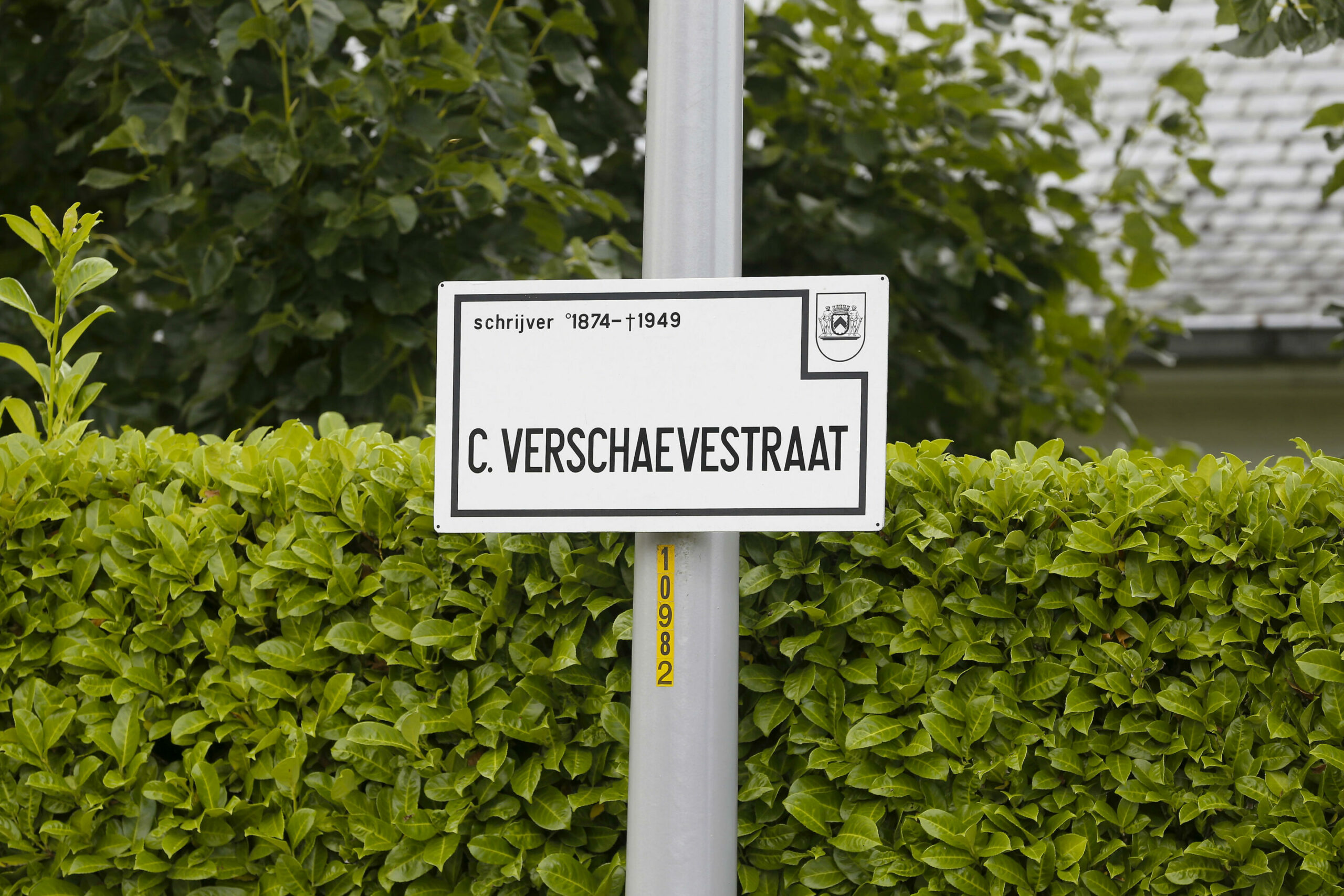
Traffic sign at the Cyriel Verschaevestraat street in Marke, Kortrijk, Friday 18 August 2017. Street names dedicated to Nazi collaborators have sparked debate. Verschaeve was a priest and writer, who called for youths to join the Waffen-SS. Credit: Belga
These words echo the many who are fighting for a critical understanding of the Flemish Movement’s dark past in the Second World War. Figures like leading Belgian historian from the University of Ghent, Koen Aerts, have worked tirelessly to change the way the region deals with its past.
Following press interventions of historians like Aerts and his colleague Marnix Beyen, street names in honour of Nazi collaborating priest Cyriel Verschaeve in various Flemish municipalities were changed starting from 2017. Notably in Lanaken, Verschaevestraten became Anne Frankstraat.
"Those, thankfully, are now almost all abolished except for one, in Alveringem," Aerts told The Brussels Times. He added that a documentary he worked on at the time was instrumental in changing minds.
"The VRT series ‘Children of the Resistance’, on which I collaborated, took things further in changing the public perception and finally encouraged politicians to intervene." However, Aerts was also subject to intimidation and a death threat following an article he published on the subject in De Standaard in 2019.
Neudt's Heroes of Resistance are also organising resistance-focused events in former collaborationist strongholds like Tielt (West Flanders). Local authorities recently announced they would be installing stumbling stones for local Holocaust victims.
"What is good is that there is more attention in Flanders on the resistance," Neudt said. "But that doesn’t mean that we should not focus on collaboration. It’s important to remember it, study it in a scientific way, and maybe learn from it."

